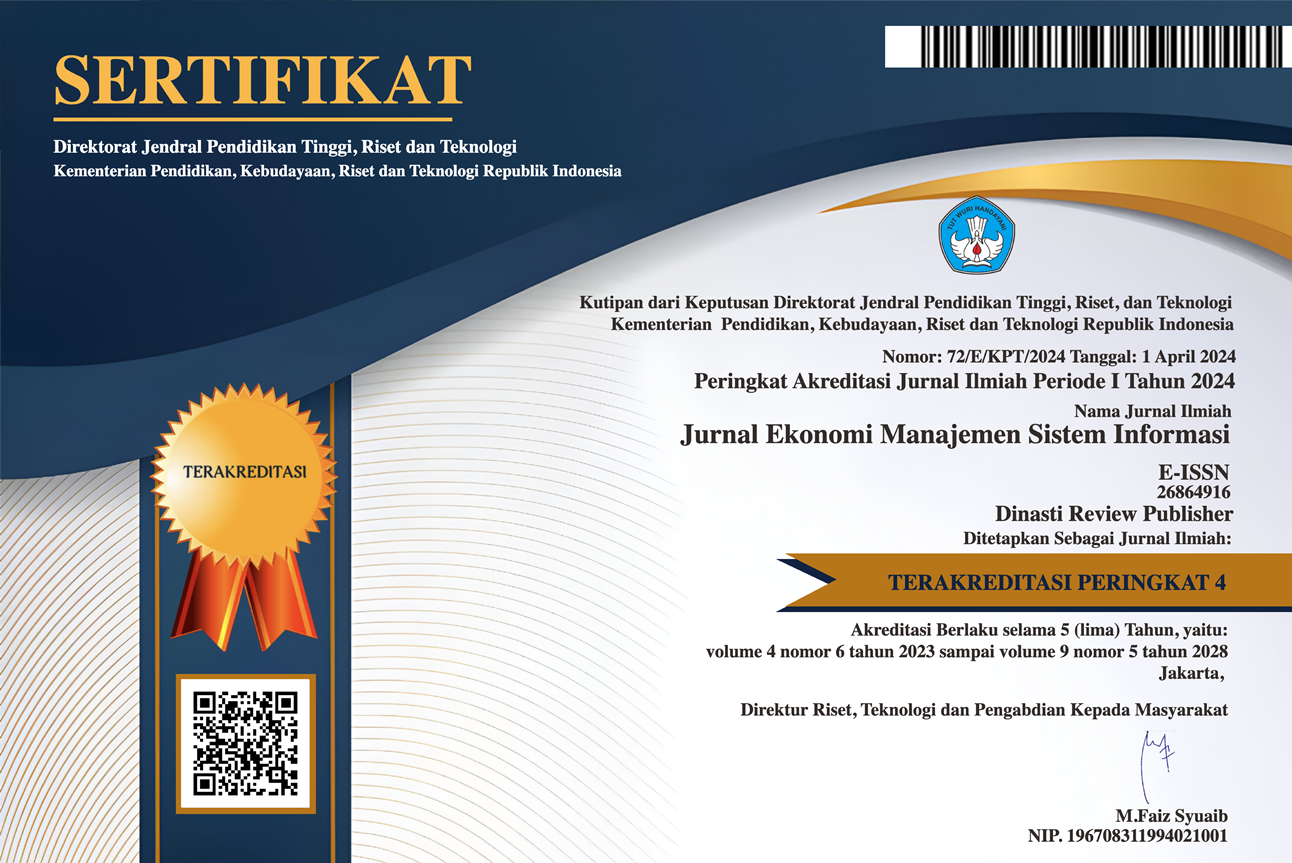Pengaruh Human Capital, Emotional Inteligence Dan Self Efficacy Terhadap Kinerja Pegawai Dimoderasi Oleh Organizational Citizenship Behavior (OCB)
DOI:
https://doi.org/10.31933/jemsi.v5i3.1852Keywords:
Human Capital, Emotional Intelligence, Self-Efficacy, Employee Performance, Organizational Citizenship Behavior (OCB), Human Resource ManagementAbstract
This research aims to analyze the influence of Human Capital, Emotional Intelligence, and Self-Efficacy on employee performance, with a specific focus on the moderation effect of Organizational Citizenship Behavior (OCB). Data were collected from respondents in various organizations, and regression analysis was employed to examine the relationships between variables. The findings indicate that Human Capital significantly contributes to employee performance, and both Emotional Intelligence and Self-Efficacy also exhibit a positive and significant impact. Furthermore, OCB moderates the relationship between the independent variables and employee performance, suggesting that employees` voluntary behaviors can enhance or diminish the influence of these factors. The results of this study provide insights into how human resource management and organizational culture can enhance employee performance in complex work environments.
References
Becker, G. S. (2019). Human capital: A theoretical and empirical analysis, with special reference to education. University of Chicago Press.
Mayer, J. D., Salovey, P., & Caruso, D. R. (2016). The ability model of emotional intelligence: Principles and updates. Emotion Review, 8(4), 290-300.
Bandura, A. (2018). Self-efficacy: The exercise of control. W. H. Freeman.
Podsakoff, P. M., MacKenzie, S. B., Lee, J. Y., & Podsakoff, N. P. (2003). Common method biases in behavioral research: A critical review of the literature and recommended remedies. Journal of Applied Psychology, 88(5), 879-903.
Podsakoff, P. M., MacKenzie, S. B., Paine, J. B., & Bachrach, D. G. (2000). Organizational citizenship behaviors: A critical review of the theoretical and empirical literature and suggestions for future research. Journal of Management, 26(3), 513-563.
Downloads
Published
How to Cite
Issue
Section
License
Copyright (c) 2024 Fahmi Rizal

This work is licensed under a Creative Commons Attribution 4.0 International License.
Hak cipta :
Penulis yang mempublikasikan manuskripnya di jurnal ini menyetujui ketentuan berikut:
- Hak cipta pada setiap artikel adalah milik penulis.
- Penulis mengakui bahwa Jurnal Ekonomi Manajemen Sistem Informasi (JEMSI) berhak menjadi yang pertama menerbitkan dengan lisensi Creative Commons Attribution 4.0 International (Attribution 4.0 International CC BY 4.0) .
- Penulis dapat mengirimkan artikel secara terpisah, mengatur distribusi non-eksklusif manuskrip yang telah diterbitkan dalam jurnal ini ke versi lain (misalnya, dikirim ke repositori institusi penulis, publikasi ke dalam buku, dll.), dengan mengakui bahwa manuskrip telah diterbitkan pertama kali di Jurnal Ekonomi Manajemen Sistem Informasi (JEMSI).










































































